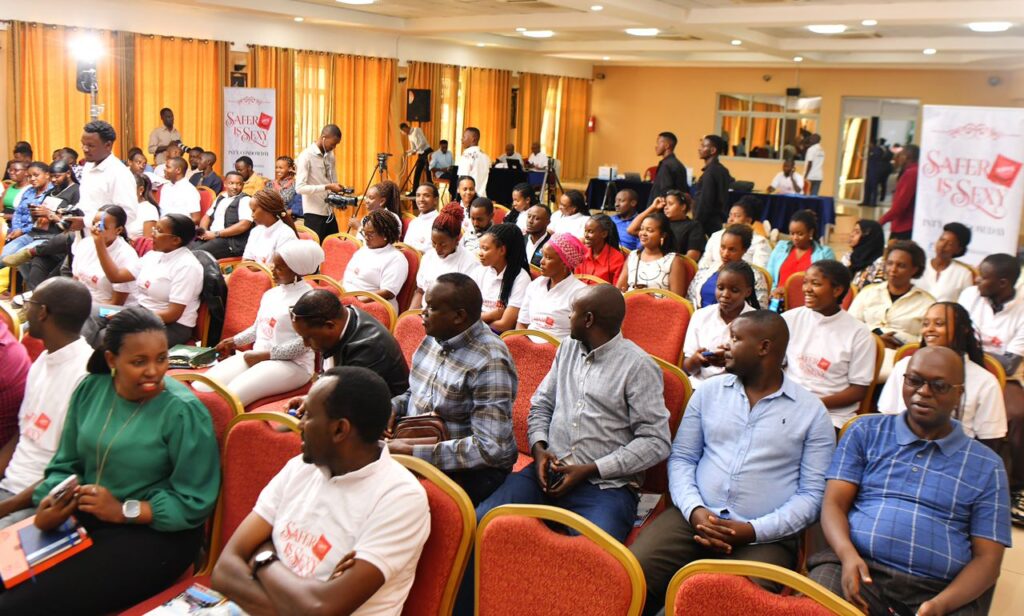By Elie Mutangana.
Healthcare workers and other health education facilitators have advised young people in particular to adopt the culture of using condoms consistently and correctly as method of contraception for curbing the prevalence of Sexually-Transmitted Disease and unwanted pregnancies.
On February 13, Rwanda joined the world to celebrate the international condom day with the theme, “Access, Empowerment and Education” where another voice was raised to caution the public on the existing prevalence of STDS and other concerning challenge result from unprotected sex.

With prevalence of 3%, Rwanda has made commendable progress in reducing HIV transmission and improving lives of people living with HIV.
Rwanda Biomedical Center, Rwanda NGO forum and other affiliated partners in HIV prevention shed lights on different strategies put in place to eliminate the risks from unprotected sex including awareness on safe condom usage and distribution.
According to Nooilet Kabanyana, the Executive Secretary of Rwanda NGO forum for AIDS and Health promotion, mobilizing usage of condoms differs from promoting sexual activities as many people perceive, yet it is rescuing people from potential risks from unprotected sex.
She said that when condom used appropriately can protect transmission at 90%.
“Many people perceive that awareness on condom influence youth to involve in sex work which is not correct. The awareness helps to encourage those who are in sex work to realize benefits from use of condom in protecting their life and of their partners”.
Director for HIV prevention Unit at RBC, Dr Bazil Ikuzo said the government has put critical efforts on condom awareness through community outreaches. Measures such as early screening, male circumcision and others are included in the campaigns as factors for prevention of risks.
“In the campaigns, we use different public figures, influencers and the media to help us carry out the message to the people. We hope their voice reaches far and can make impact because some people look up to them.” He said highlighting that they put a critical eye on categories including sex workers, homosexuals and children born to sex workers.
However, observers including, Kevine Uwase who works at Impanuro Girls initiative raised concerns on people who feel ashamed of buying condoms due to lack of confidentiality among people.
“Sometimes people hesitate to buy condom fearing that the seller wouldn’t keep it confidential. For example, young people eventually fear to buying a condom fearing that I will spread to many people including the parents while sex should be private business”.
AIDS Healthcare Foundation (AHF), a partner in Rwanda’s health promotion pledged efforts in distributing condom dispensers and kiosks for availability and easy access of condoms in public places with large community of youth like at universities.






